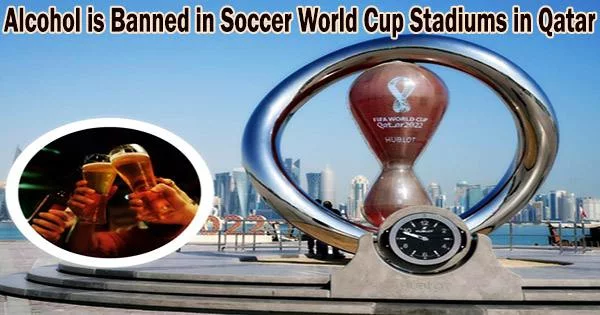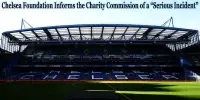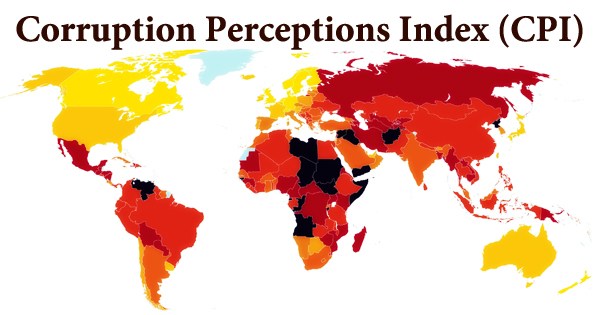FIFA officials shockingly announced Friday that Qatar is banning alcohol sales from its stadium perimeters 48 hours before the start of the soccer World Cup.
The sport’s troubled international governing body said in a tweet that the decision had been made “following discussions between host country authorities and FIFA.”
It is an impressive last-minute policy adjustment for the affluent Gulf nation, which had 12 years to plan the second-largest athletic event in the world, after the Olympics.
Because of Qatar’s dismal record on human rights, its discrimination against the LGBTQ+ community, and its mistreatment of migrant workers who built the tournament venues, this World Cup is already steeped in controversy. This also draws attention to another potential flashpoint: that between this notoriously intoxicating sport and the conservative, Muslim nation hosting it.
It also presents a major headache for major sponsor Budweiser, which has a $75 million advertising deal with FIFA.
FIFA’s statement thanked AB InBev, Budweiser’s parent company, for its “understanding and continuous support” to “cater for everyone” during the World Cup.
On Friday, after reports that Qatar’s alcohol ban was imminent, Budweiser tweeted: “Well, this is awkward…”
When asked for comment, Qatar’s Supreme Committee for Delivery and Legacy, which is organizing the event, directed NBC News to FIFA’s statement.
It comes just two days before the opening ceremony and the first match between Qatar and Ecuador at the 60,000-capacity Al Bayt Stadium, just north of Doha.
The sale of alcohol is severely regulated in Qatar due to the absolute monarchy that controls the country and its interpretation of Islamic law. In spite of reservations about its human rights record and a lack of soccer infrastructure, it consented to loosen these regulations prior to the World Cup, which it was given in 2010.
FIFA’s statement said that alcohol will be served only at designated fan zones, named the FIFA Fan Festival, and other licensed sites.
It said “sales points of beer” will be “removed” from stadium perimeters, meaning the red Budweiser kiosks seen outside the Khalifa International Stadium in Doha, for example, may need to be moved or changed. Bud Zero, the brewer’s alcohol-free drink, will still be allowed inside the stadium perimeters, the statement said, meaning that product could still be sold by those vendors.
Sky News, NBC News’ British partner, also reported that alcohol will still be available for corporate hospitality.
In many countries, particularly in Europe, soccer still has a difficult relationship with booze. Last year, thousands of rowdy, ticketless England fans, many of them clearly intoxicated, stormed London’s Wembley Stadium, marring the final between their team and Italy.
Nevertheless, many fans are disturbed by the idea of such a major event upending its policies so close to the event itself.
“If they can change their minds on this at a moment’s notice, with no explanation, supporters will have understandable concerns about whether they will fulfil other promises relating to accommodation, transport or cultural issues,” the Football Supporters’ Association, a group covering fans in England and Wales, said in a statement.
Qatar has previously stated that all supporters, including LGBTQ+ individuals, are welcome, but that travelers should respect the culture of the country, in which public shows of affection by anybody are discouraged.
















